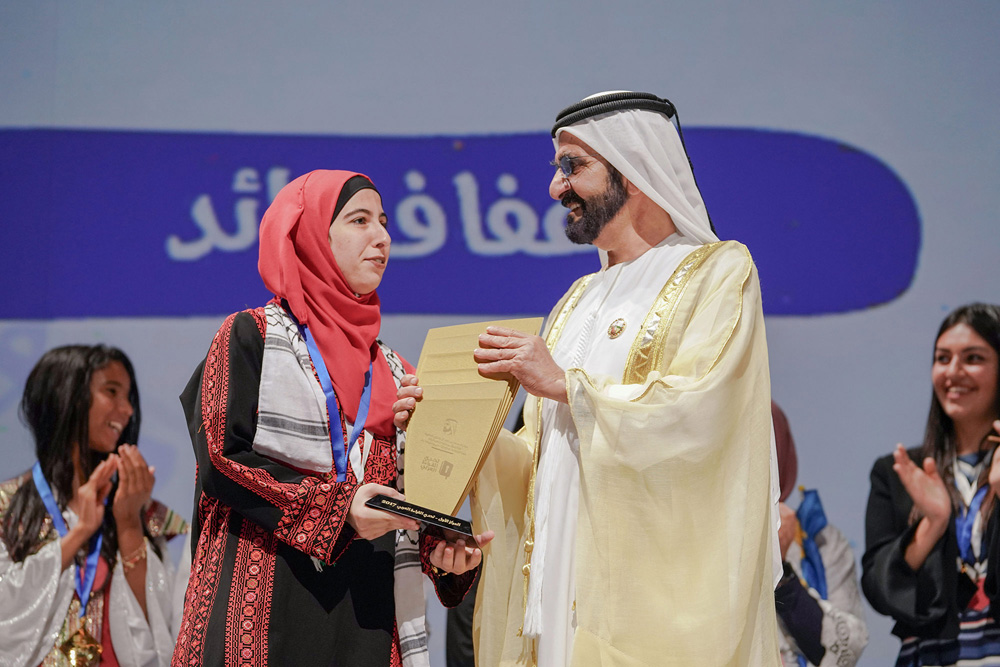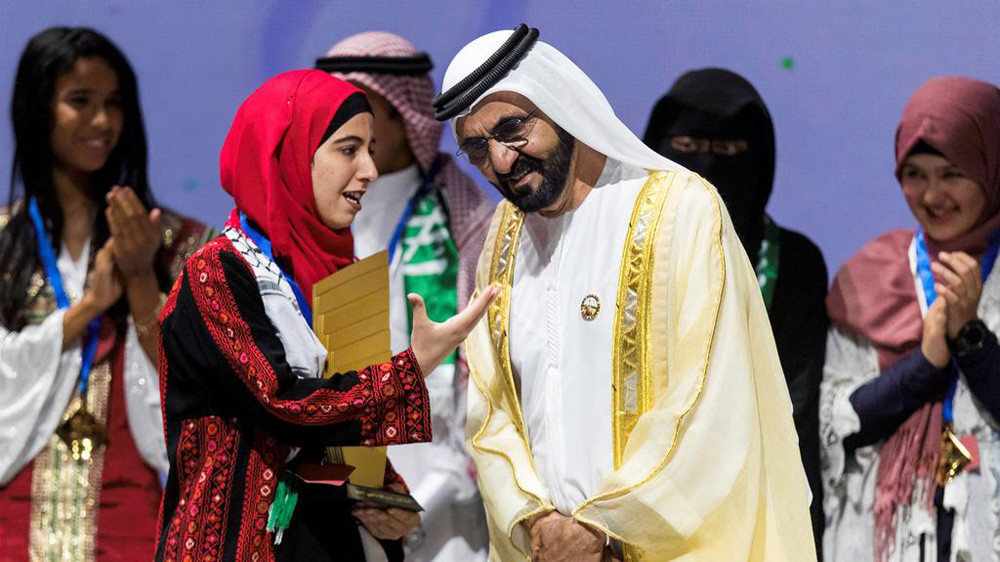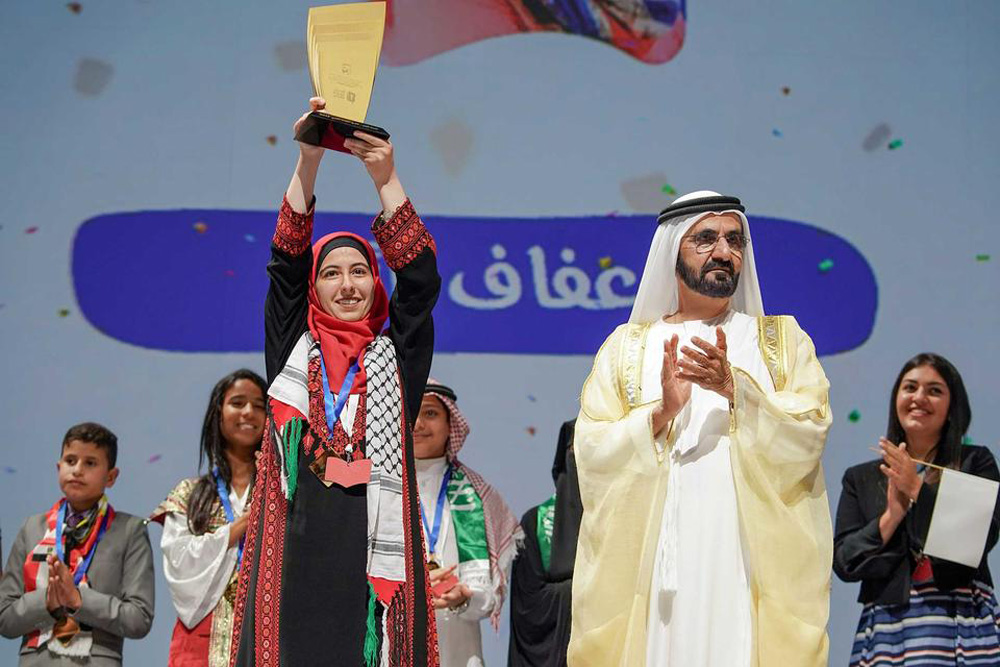
Sheikh Mohammed bin Rashid with Afaf Raed Sharif
This year has seen the UAE promoting reading as an advantage for all, most recently with His Highness Sheikh Mohammed bin Rashid Al Maktoum stating that “[t]here is no power stronger than reading and knowledge,” and earlier this year when his wife Princess Haya bint Al Hussein pointed out that literacy starts at home and has far-reaching implications for a child’s life.
During the second Arab Reading Challenge that took place this October, Afaf Raed, a Palestinian student, was named this year’s winner and she was congratulated by Sheikh Mohammed himself. From a pool of millions, Raed stood out for her reading comprehension, general knowledge, and Arabic communication skills. She is set to receive 550,965 dirhams (around 150,000 USD), which will be divided between her family for their unwavering support and her university education.

According to the National, the 2017 Arab Reading Challenge involved millions of participants across the region, each reading 50 Arabic books during the year. In its first edition in 2016, Sheikh Mohammed handed certificates to every participant who completed the challenge. Indeed, from the UAE alone, almost 328,000 pupils from more than 900 schools participated in this year’s challenge, up from 160,000 students in last year’s challenge.
Sheikh Mohammed took the opportunity at the event to highlight the importance of reading on a personal level, as well as regionally, saying, “The real winner is the Arab World and the Arab youth who is equipped with the power of knowledge and books.”.
“We want to gather all Arabs from around the world in the Arab Reading Challenge […] The Arab Reading Challenge unveiled the passion of our kids with reading. We are a nation of reading… and it actually does read.”

Back in early September, Princess Haya also took the opportunity on International Literacy Day to encourage parents to nurture a culture of reading at home. According to her Instagram post, “The "multiplier effect" of literal empowers people, enables them to participate fully in society and contribute to improve livelihoods. Literacy is also a driver for sustainable development in that it enables greater participation in the labor market; improved child and family health and nutrition; decreases poverty and expands life opportunities.”
She also went in to say that, “Globally, at least 758 million youth and adults still can not read and write and 250 million children are failing to acquire basic literacy skills. These results in an exclusion of low-literate and low-skilled youth and adults from full participation in their communities and societies. Education is of course paramount, but for many, literacy starts at home.”

















